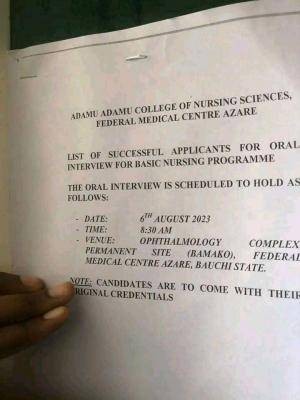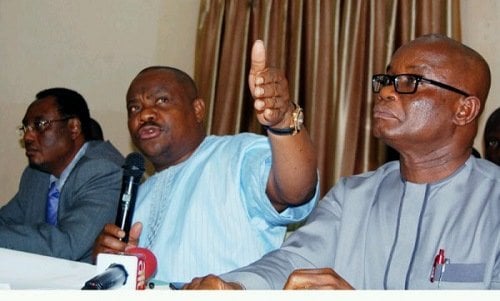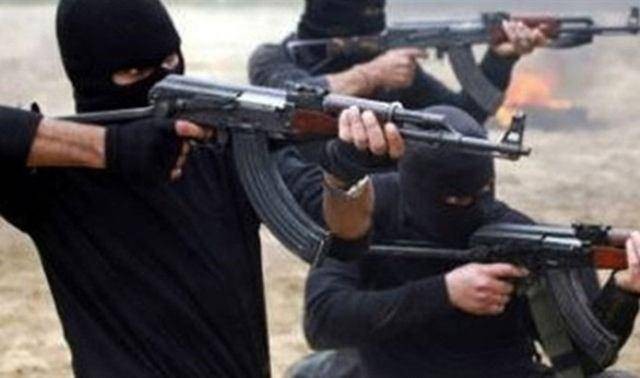
The Academic Staff Union of Universities’ strike has ended but other unresolved issues may frustrate proper resumption of academic activities in some of the nation’s public universities.
The human and vehicular traffic at the University of Lagos main gate on Sunday and Monday points to one fact: life is returning to the ivory tower after a long spell of inactivity. There was also verve at the institution’s hostels, classrooms and business centres. In fact, some departments in the university started lectures on Monday.
As it was at UNILAG, so it was also at the Obafemi Awolowo University, Ile-Ife, University of Ibadan, Lagos State University, Ojo and the Niger Delta University, Amassoma, Bayelsa State, among other public universities in the country. Life is gradually coming back to these institutions after the over five months of industrial action embarked upon by members of the Academic Staff Union of Universities.
The lecturers embarked on the strike on July 1, 2013, to protest against the non-implementation of an agreement they reached with the Federal Government in 2009. The action, suspended on December 17, lasted for 169 days.
But many of the universities too did not immediately resume for classes after the suspension of the strike because of the closeness of the Christmas and New Year festivities. Perhaps, this explains the joyous mood and celebrations on campuses in the last few days, particularly among the students who had not seen one another for over six months. The way they exchanged greetings and banter showed this as much.
Beyond these boisterous activities, however, there are other undercurrents agitating the minds of many stakeholders. For instance, they are worried about the recovery of the lost academic time in 2013, standard and quality of education, fate of the candidates offered admission for the 2013/ 2014 academic session as well as those planning to sit the forthcoming Unified Tertiary Matriculation Examination in April.
Aside from these general concerns, they note that there are other unresolved specific issues in some of the universities. Already in institutions such as the Lagos State University, Ojo; University of Nigeria, Nsukka; Enugu State University of Science and Technology, Enugu and the University of Jos, there is rising tension.
Indeed, at the UNN on Monday, there was a rally to protest what the Joint Action Committee of the university — comprising ASUU, the Senior Staff Association of Nigerian Universities and the Non-Academic Staff Union of Educational and Associated Institutions — said would protect the institution and its workers from the hands of “evil men.”
Draped in black attire, the protesters demanded the immediate reinstatement of the university’s Governing Council Chairman, Dr. Emeka Enejere; setting up of a judicial panel of inquiry in the institution, implementation of Consolidated Tertiary Institution Salary Structure II for staff of the University Primary School and the suspension of its Vice-Chancellor, Prof. Bartho Okolo.
They also demanded an immediate end to the “illegal Internet deductions” and refund of such money to staff, recall of all staff on suspension for the past two years, immediate end to the “illegal deduction of electricity bills” from staff on campus and the lifting of ban on non-promotion of security staff for the past five years.
But as the protest continued, the chapter ASUU Secretary, Dr. Adibe Agbo, in a text message to members of the union, said the association was not involved in the protest. He urged them to go about their normal duties pending further notice. The ASUU-UNN chairperson, Dr. Ifeanyi Abada, who said Agbo’s interest was anti-ASUU, nevertheless, discountenanced this claim. He added that the university management was trying to use the likes of Agbo to break the ranks of the union.
There is also the threat of disruption of academic activities at LASU. Lecturers of the university penultimate Monday threatened to embark on another round of strike if the authorities failed to redress some of their requests.
The LASU-ASUU Chairman, Dr. Adekunle Idris, at a briefing, said they had put up a 10-point demand before the varsity authorities.
According to him, the demands include the implementation of the University Act 2012, downward review of the institution’s fees, abolition of “no vacancy, no promotion” policy, regularisation of appointment exercise for members on temporary appointment and full payment of 17-month salary arrears.
Others are the restructuring of courses in the university, immediate payment of accrued earned allowances, provision of befitting university environment, and the review of the deadline for the acquisition of PhD degree.
Although lectures have commenced in the university, Idris, who spoke to our correspondent on Monday, said the union would meet again this January to review how far the authorities had reacted to their demands. According to him, he hopes the university management and governing council will urgently address their requests to enable peace to continue to reign in the institution.
A crisis is also brewing at UNIJOS, following the alleged non-payment of their salaries and allowances. In fact, lecturers of the university on Sunday threatened not to return to work over some unresolved issues, chief among them being the unpaid 2009 to 2012 earned allowances. The school resumed on Monday.
The Enugu State University of Science and Technology, Enugu is similarly facing an internal crisis. Just seven days after the ASUU national body suspended its strike, the university chapter rose from a meeting, threatening to disrupt academic activities in the institution. In fact, the union kicked against the appointment of deans of faculties and the non-payment of its members’ salary arrears.
The school’s Public Relations Officer, Mr. Osy Ugwuoti, on Monday, however said there was no longer internal wrangling in the university. Attempts to confirm this claim from the ESUT-ASUU Chairman, Prof. Gab Agu, failed, as several calls to his mobile telephone did not go through.
Besides such internal wrangling, an education consultant, Mrs. Ify Nwobosi Anatune, said there was the need for the Federal Government to respect the recent bargain it had with ASUU. According to her, respecting the agreement will bring about sustainable peace and enhance the provision of the right teaching and learning environment in the country.
Anatune, who said many of the students still belonged to the impressionable age bracket, noted that their frequent exposure to strikes could make them not to appreciate the essence of a stable education system.
A university teacher, Prof Ayo Olowe, agrees with her, saying the strikes at the nation’s tertiary institutions were preventable. He noted, for instance, that the last ASUU strike would have been avoided had the Federal Government respected the pact it signed with the union in 2009.
The professor of Finance at the UNILAG said, “To have normalcy in the universities, the Federal Government must learn to honour agreements. It should also learn to respect the standard practice in funding and other spheres of the nation’s life. The Federal Government also needs to be proactive to the needs of the universities. ASUU members do not like strikes. It is the last option they like to engage in after negotiation had failed.”
Calling for accountability and the setting up of independent monitoring committees to oversee the funding and execution of projects in the university system, Olowe said such measures would help to rid corruption in the sector.
He added, “Although the Federal Government has inaugurated an independent committee to monitor parts of the last agreement, I would have preferred a situation where the committee will embrace other stakeholders like students and lecturers. Such stakeholders will raise the alarm more than outsiders if there is anything wrong in the system.”



